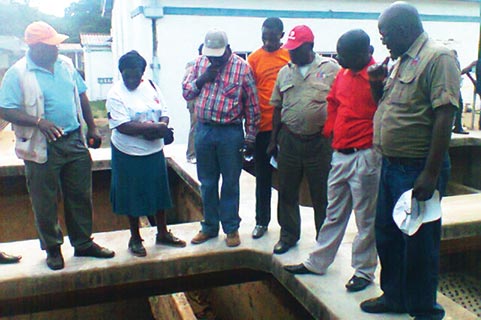
THE Bulawayo City Council is set to harness “dead water” from Inyankuni dam when levels dwindle as a way of addressing the city’s perennial water problems.

MTHANDAZO NYONI OWN CORRESPONDENT
Dead water refers to water left when dam has been decommissioned and it is normally reserved for fish and other aquatic life. But speaking during the tour of the city’s water supply dams on Friday, mayor Martin Moyo said council had proposed to extract dead water from Inyankuni in the future to curb shortages.
“The plan is to extract dead water was for Inyankuni dam, which was decommissioned some time ago,” he said.
“This will help even though it will not last for more than two months.”
The council’s deputy director of water and sanitation, Ian Mthunzi added that the council had proposed to connect Mtshabezi and Lower Ncema directly to the city’s water supply system to minimise water losses through evaporation.
“These are the other things which councillors and parliamentarians should think of,” he said.
- Chamisa under fire over US$120K donation
- Mavhunga puts DeMbare into Chibuku quarterfinals
- Pension funds bet on Cabora Bassa oilfields
- Councils defy govt fire tender directive
Keep Reading
“This is because Umzingwane dam usually becomes empty after every three years and this will reduce evaporation.” He said the pipeline connection will cost $9 million. Meanwhile, council officials confirmed that they had not been pumping from Mtshabezi dam since January 17 due to a pipeline breakdown.
They revealed that the Zimbabwe National Water Authority was currently working to repair the pipeline to ensure normal pumping resumes soon.










